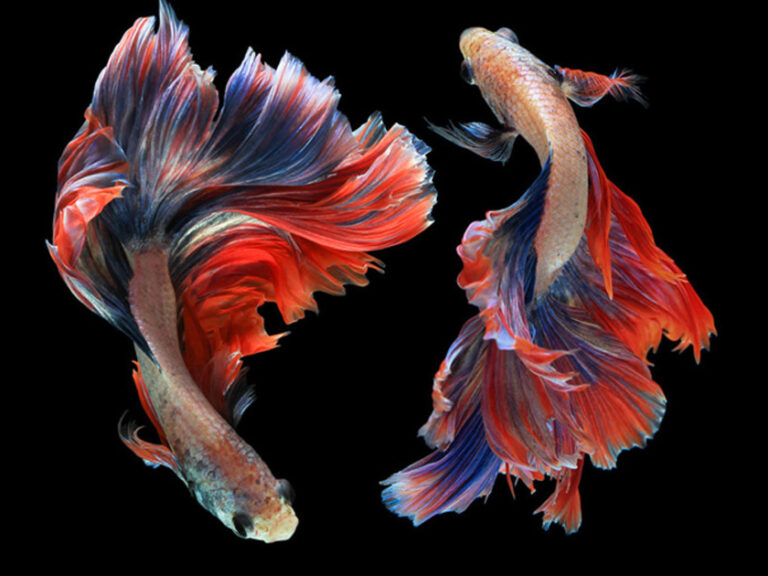Fish are fascinating creatures, and betta fish, in particular, have a special place in many aquariums due to their vibrant colors and unique behavior. But have you ever wondered if betta fish sleep? The answer might surprise you! In this article, we’ll dive deep into the world of betta fish sleeping habits, explore the signs of a sleeping betta, and discuss how you can ensure your pet gets the rest it needs.

Do Fish Sleep?
Do Betta Fish Sleep?
How to Tell If Your Betta Fish Is Sleeping
Betta Fish Sleeping Habits and Patterns
Where Do Betta Fish Sleep?
Do Betta Fish Sleep at Night or During the Day?
Why Is My Betta Fish Sleeping So Much?
Common Questions About Betta Fish and Sleep
Tips for Supporting Your Betta Fish’s Sleep
Yes, fish do sleep—but not in the way we humans do. Fish don’t have eyelids, so they don’t close their eyes, but they do enter a resting state. This state helps them conserve energy and recover. Their “sleep” is more like a period of inactivity, and during this time, they may hover in place or settle on a surface in their tank.
Absolutely! Betta fish sleep, just like other fish, but their sleeping habits are a bit different. Betta fish are diurnal, meaning they’re most active during the day and sleep at night. If you’ve ever noticed your betta lying motionless on a plant leaf or at the bottom of the tank, don’t panic—it’s probably just sleeping.
Betta fish can appear quite still while sleeping, which sometimes worries their owners. Here are some signs that your betta fish is asleep:
Stillness: Your betta isn’t moving much, but its gills will still move gently.
Positioning: It may rest on a plant, near the tank bottom, or float mid-water.
Eyes Open: Since bettas don’t have eyelids, their eyes remain open even when they’re sleeping.
Reduced Reaction: Your betta may not respond to slight movements or sounds while it’s asleep.
Betta fish have unique sleeping habits:
Sleeping Positions: They may sleep upright, sideways, or even upside down, depending on where they feel most comfortable.
Naps: While bettas primarily sleep at night, they may take short naps during the day.
Resting Time: Betta fish need consistent sleep to stay healthy and active, just like humans.
Betta fish are creative when it comes to choosing sleeping spots. Common places include:
On Plants: They love resting on broad leaves near the water surface.
On Tank Decorations: Hiding spots like caves and logs provide a sense of security.
Near the Bottom: Some bettas prefer lying on the substrate.
If you don’t see your betta sleeping, it might be because it’s hiding or choosing a spot out of your view.
Betta fish primarily sleep at night, as they are diurnal creatures. However, they may take brief naps during the day, especially if they’re in a calm and stress-free environment.
If your betta fish seems to be sleeping a lot, it could be due to several factors:
Tank Lighting: Bettas need a clear day-night cycle. Too much light or constant darkness can disrupt their sleep patterns.
Age: Older bettas tend to sleep more than younger ones.
Health Issues: Excessive sleeping could signal illness or poor water quality.
Temperature: If the water is too cold, your betta’s metabolism may slow down, causing it to rest more.
Do betta fish sleep with their eyes open?
Yes, betta fish sleep with their eyes open because they don’t have eyelids.
Can betta fish sleep upside down?
Sometimes! Bettas may rest in unusual positions, like upside down or sideways. If they appear healthy otherwise, this is normal.
Is my betta fish dead or sleeping?
If your betta’s gills are moving, it’s alive and likely sleeping. A lack of movement for an extended period could indicate a problem.
Can bettas sleep with the light on?
While they can nap with lights on, bettas need darkness for a proper night’s rest.
Do betta fish nap during the day?
Yes, betta fish often take short naps during the day, especially after periods of activity.
Create a Day-Night Cycle: Use a timer to ensure your betta has 8-12 hours of light and darkness each day.
Add Plants or Decorations: Provide resting spots like broad-leaf plants or hiding caves.
Monitor Tank Conditions: Keep the water temperature between 76-82°F (24-28°C) to support their natural activity and rest cycles.
Avoid Disturbances: Try not to tap on the tank or turn lights on suddenly while your betta is sleeping.
Betta fish, like all animals, need sleep to thrive. Understanding their sleeping habits not only helps you ensure their health but also deepens your bond with your pet. By providing a suitable environment, observing their behavior, and addressing any unusual changes, you can help your betta enjoy a restful and happy life in its tank.
So the next time you see your betta lounging on a plant or floating peacefully, don’t worry—it’s just catching up on some well-deserved rest!
animal tags: Betta-fish
We created this article in conjunction with AI technology, then made sure it was fact-checked and edited by a Animals Top editor.